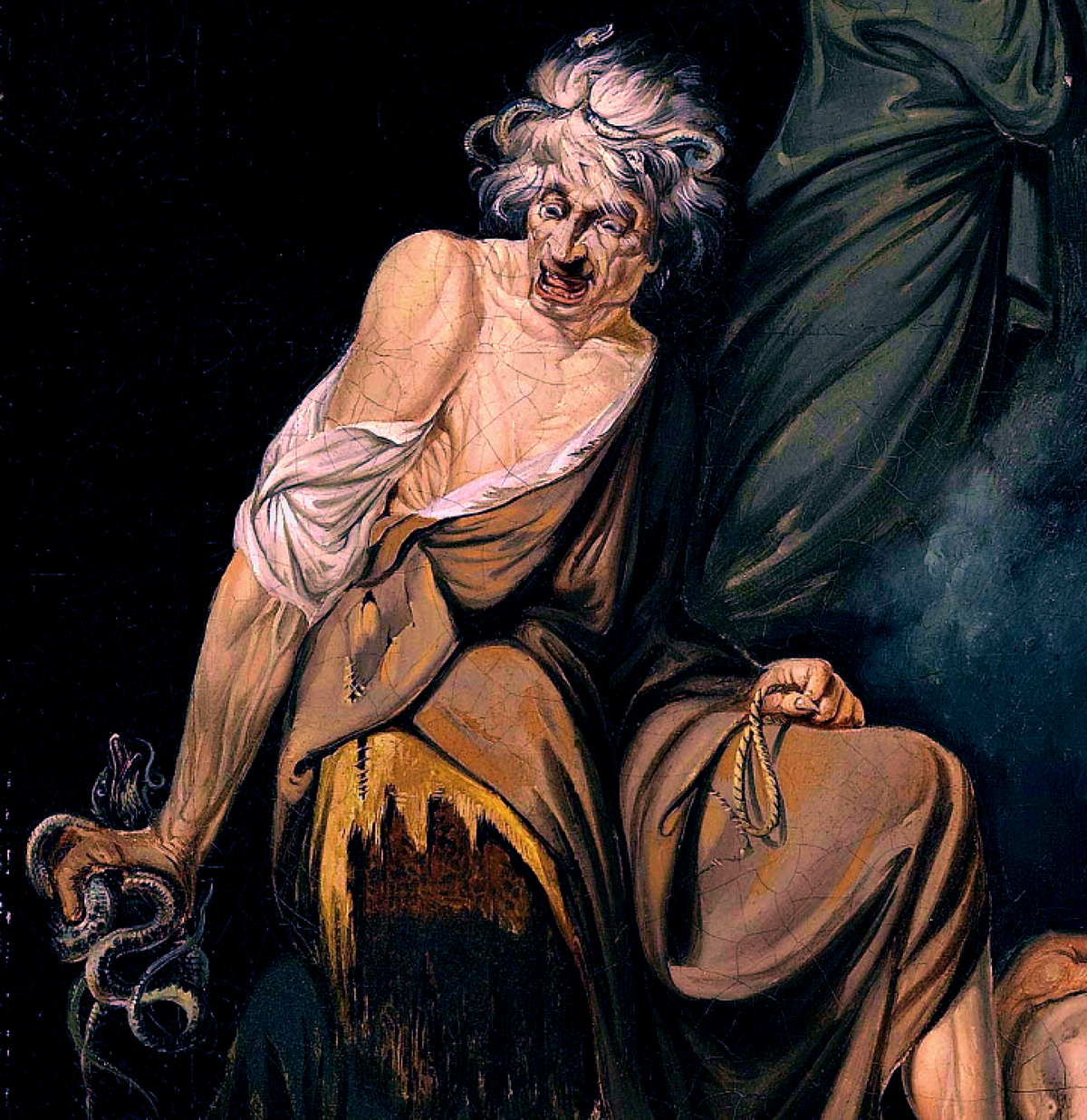Lucan's Description of the Necromancer-Witch Erichtho
An excerpt from Lucan's epic poem, Pharsalia (1st century CE), introducing the villainous witch Erictho, who is sought out by Pompey's son during the civil war.

Content Warning: Not appropriate for children or those faint of heart.
PHARSALIA
Book VI 510-565
Translation: Jane Wilson Joyce
"Rituals of such wickedness, the crimes of her dire tribe—these savage Erichtho scorned as excessively pious; she has turned her polluted skill to rites new and strange. Sacrilege, to her, is a city roof or household Gods offering her ghastly head shelter. Abandoned tombs are her home; she claims graves whose shades have been evicted. Darling of Deities Below, she hears the Silent Ones debate, knows the stygian abodes and shrouded secrets of Dis—not Gods Above, not life itself gainsay her.
Her face is foul, wasted to evil leanness; unseen by serene skies, her terrible features are stricken with stygian pallor, plastered with matted hair; if storm and black clouds veil the stars, then Erictho walks out, amongst tombs she has rifled, to snare bolts of midnight lightening. Her footfall blights grain in fertile wheatfield; breezes that brought no death, her breath turns to deadly poison.
She neither prays to Gods Above nor begs divine aid with suppliant hymn, nor does she know prophetic entrails. Decking alters with flames funereal gives her joy—so does incense filched from pyres already kindled. The Gods Above grant her every evil the moment she invokes Them—They fear to hear her second prayer.
Living souls and those still ruling their bodies, she has entombed underground; though the Fates owe them years yet. Death steps forth unwillingly. She has turned a cortege around, rouses a corpse from its tomb, cadavers elude their demise. From the heart of a pyre, she snatches children’s smoking ashes, their smouldering bones, the very torch from their parent’s hands.
She gleans the things that fly up in the pitchy smoke—woodchips from the funeral bier, scraps of graveclothes crumbling to ash, cinders that sting of charred flesh. But, when remains are laid to rest in stone (which draws off bodily fluid), once the corrupting marrow has drained away and the corpses stiffen, then she greedily savages all their parts—working her fingers deep into sockets, gleefully digging out ice-cold eyeballs, gnawing the long, yellowed nails from a withered hand.
She works the noose’s lethal knots, loose with her lips and harvests the bodies of hanged men; she scrapes crucifixes clean, raking off guts pulped by rainstorms and bone marrow exposed and sun-baked. She carries off spikes driven through hands, the black gore, the clotted filth of limbs oozing putrefaction.
If a ligament resists, she bites it and hangs by her teeth. Whenever a corpse is lying out on the bare earth, she squats beside it before the beasts and vultures—not that she wants to rip its limbs with knife and nails; she awaits wolves’ fangs, preferring to tweak gobbets from gullets still dry.
Nor do her hands hold back from murder if she has need of the first blood that gushes hot from an opened jugular, or if her ghoulish banquet requires quivering flesh. Through a wound in the womb and not as Nature intended, a foetus is scooped out to be splayed on a red-hot alter. However, often she needs a ghost both savage and strong, she creates one.
Every sort of human death is useful: she’s plucked down from the cheeks of a lad, dead in youth’s first bloom, torn a dying boy’s forelock out with her left hand.
Often, too, the hag has straddled a corpse—her own kin—her witch’s limbs writhing atop his cherished body; affixing kisses, she severs the head, prises its sealed mouth open, nips off the tip of the tongue, pasted onto his dry palate, between his icy lips she pours murmurs, sending through him an evil message to Stygian shades."

Excerpt is from Jane Wilson Joyce's translation of Lucan's Pharsalia.
(Note: Joyce's translation keeps the poetic format, I have removed it here, as this is post is purely informational. To see the passage in it's full glory, purchase her book.)





